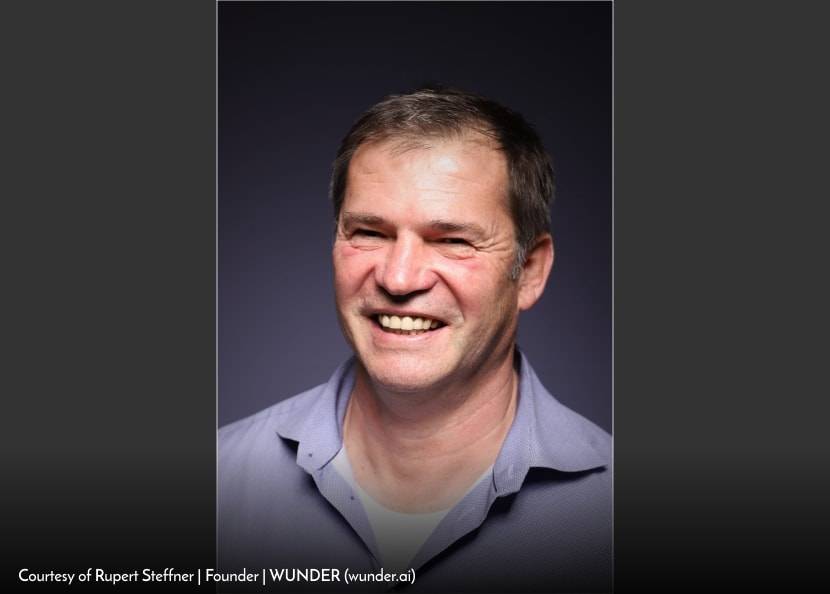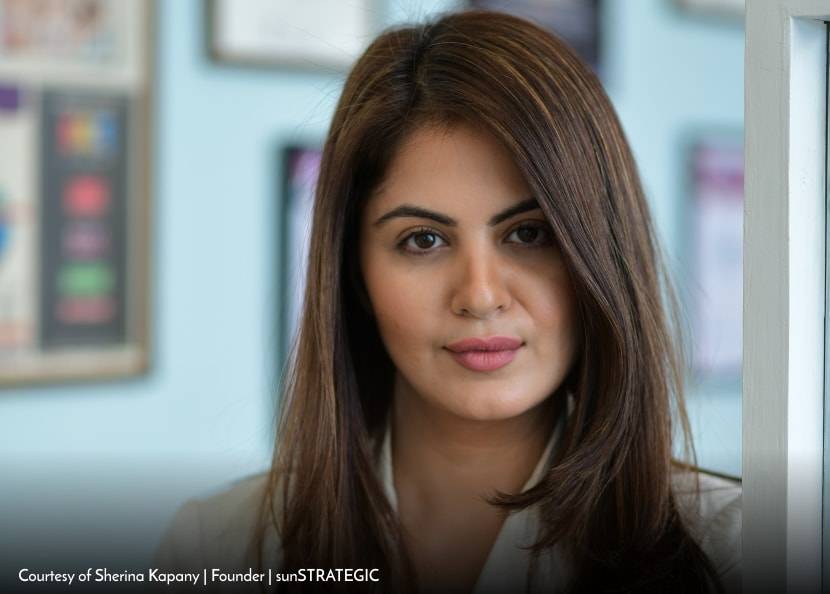Rupert Steffner: An Entrepreneur with a Vision to Create Wonders

For any entrepreneur, finding and giving time to ponder upon the future can mean the very difference between successfully building your company or watching it dissolve into ashes. With a cumulative experience of over two decades, Rupert Steffner is one pioneering entrepreneur who had the willingness to make something massive for the future and incepted an AI company named Wunder. In an exclusive interview with Beyond Exclamation, Rupert Steffner shares his journey as an entrepreneur, the story behind his company’s foundation, and his vision of creating a wonders.
What prompted the inception of this idea of bridging the gap between offline and online commerce experiences?
It’s a story about infection and incubation. During my marketing studies, I became passionate about why customers buy, and I always felt that technology could help us one day to solve the problem. Spending many years in technology since then, we have recently seen major advance in artificial intelligence. But what we still miss is a type of machines that better interacts with humans. These are grounded on things like digital empathy, reasoning, and interaction intelligence, i.e. skills we know from the human brain. Transferred to the world of commerce, these are the skills of talented sellers that need to be digitized. And this is the time we can be successful to create mind machines that are emotional, interactive and meaningful.
Brief us about your journey as an entrepreneur. What have been the biggest challenges and achievements thus far for you?
Developing new technology and bringing it down to earth to build a new breed of consumer-facing applications requires both knowledge in technology and business. The lesson learned is that there is an easy and a hard way to product-market fit. The easy and highly tempting way is to adapt the product to current requirements. The hard way is to keep the product aligned with future market needs and to find the right customers – and we have decided on this path.
We had to accept that if you come to market with really new things, there are only a small number of companies that understand your solution. We learned that Roger’s adoption cycle with few innovators and early adopters is true, and not the marketing buzz of all the companies that claim they are innovative. So we had to achieve to find these forward-thinking companies, and to get them on board as our first customers.
What are the most critical skills of an entrepreneur? How do you impart the same upon your colleagues, employees and children?
Vision, creativity and perseverance. A far reaching vision is a prerequisite for finding one’s place against today’s dominant digital companies. Creativity is needed once to develop a genuine business story that opens the door to the board rooms. Second, to achieve sophistication in digital engineering to make your solutions defendable. Perseverance is the survival technique when you are the only one left who believes in your mission. Teaching these skills and values happens through living by example. More music, less talk.
How does WUNDER leverage the power of AI technology to its advantage? What are the solutions and services of the company?
WUNDER leverages the power of AI technology by building explainable and trustful AI through an engineering approach. This white-box approach goes along with hybrid AI learning to combine human reasoning and symbol grounding with pattern recognition from machine learning. Moreover, we are well aware that we able to engineer our solution towards a more generic artificial intelligence (AGI) being one of the first of its kind.
WUNDER builds Customer Engagement Machines to help brands manage their customers’ purchase intent in real-time. This is achieved by creating Digital Customer Twins that mimic consumer decision-making with cognitive artificial intelligence. Customer Engagement Machines provide a series of contextual engagement applications to qualify customer’s purchase intent. These are ‘Product Discovery’ (a serendipitous discovery combining psychographic questions with soft product recommendations), ‘Matching Stories’ (explaining consumers why this is a good product match), ‘Social Match’ (transforming lifestyle and social data into product preferences on the fly) and ‘Shopping Party’ (allowing joint decision-making of several shoppers).
What is the thought behind the name of the company – WUNDER?
‘WUNDER’ is a German verb, and it means wonder. As a small company, we have been working hard to create something surprising and massive that even big companies did not succeed to build to date. So the name is quite programmatic in the sense of creating a little wonder.
Amidst all your responsibilities and roles, how do you manage to balance between professional and personal life?
When you’re on a mission, there is a floating line between work and leisure. I have found that it is better not to fight your addiction to discover new land. You need this drive, and living at the heights of the work amplitude can be very satisfying. But in the long run you need some tricks to achieve a quick but deep recovery. For me it is the look at bright faces to give my heart an inner smile, and I embrace trees to get extra strength from my second best friends.
Do you believe to have achieved all that you have desired? What keeps you driven and determined towards work?
Along my education and work experience, I deeply dived into several domains like cognitive psychology, real-time application development and business intelligence before starting WUNDER. These experiences helped to become quite good in getting out the assumed maximum of what can be built. But the discovery of new things is like a march through the swamp. With every essential step, new goals become visible that keep you going.
For years you have helped inspire individuals to take innovative actions and surge ahead towards success. What is your advice for emerging and budding entrepreneurs?
Building credibility that you are the right person to fly to mars! There is justified criticism that founders produce innovations that are too small and incremental. Think big. Dream. Explore. Discover. And then build something massive.
What does the future hold for Rupert Steffner and WUNDER?
With cognitive AI we have only scratched the surface so far. AI is in the maturity stage of a two-year-old child, and my personal goal is to help raise artificial intelligence to a human maturity stage of 8 years.
This will be a long way with building blocks like better reasoning, causality, biologically inspired learning methods and so on. My future goals are to still better integrate insights from cognitive psychology and neuroscience to make cognitive systems more empathic and relevant.





